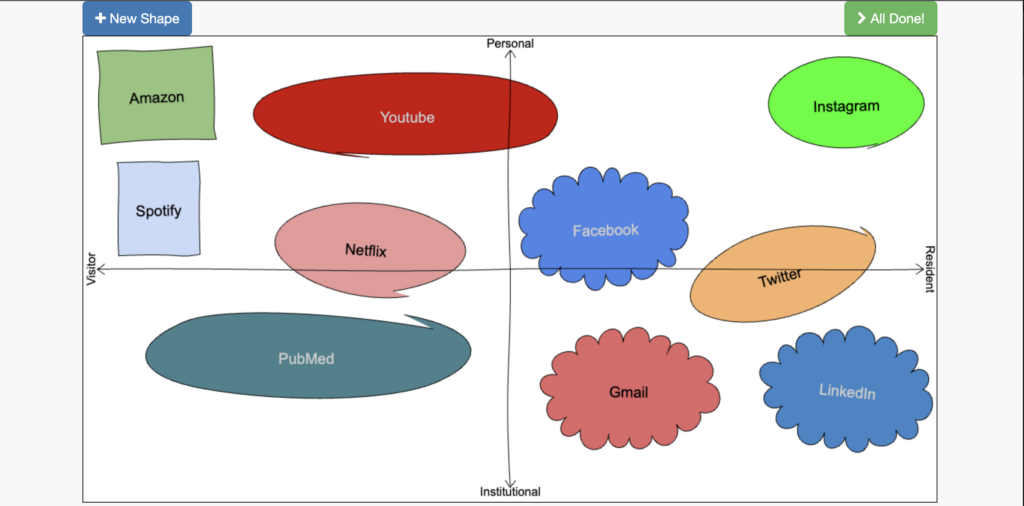What digital platforms are students currently using to develop their professional network?
Students today have many different options to use to develop their professional network. The most commons ones used to network professionally would be LinkedIn and Twitter. These apps are great because they are in a more professional environment than other apps such as Facebook and Snapchat. As a fellow LinkedIn user, I believe it is excellent tool to share your skills and look for connections with other professionals with similar interests.
What could the student consider in expanding their professional learning network?
When students want to expand their professional learning network they should first consider how their digital identity looks for other professionals. This means they should make themselves a very presentable profile and take advantage of all the features the social media platform has to offer them. They should also be sure to share a smart amount of personal information and make sure that nothing is shared that could harm themselves in the future.
How do data privacy and security limit and/or promote a PLN?
Digital security is a huge factor when choosing which personal learning network to use. Often creating profiles require you to put in personal information and other data such as emails, phone numbers, location and birthdate. This data is very important to us so we have to be wary that the network we are using is credible and that our information isn’t being spread publicly.
In your network how can you create a digital identity/ reputation?
I can create a digital identity or reputation by choosing carefully how I want to portray myself online. This can be done first by choosing what I want people to think of me and how my profile will be built. From there, my posts, comments and shares will show my network who I am and thus create myself a digital identity or reputation based on these actions. The best way to build a good reputation is to be credible and authentic with what you share online without offending others.
How did pivots to work-from-home during the COVID-19 pandemic change how we should consider our social media connectivity and professional balance?
I believe that the pivot from working from home during the COVID-19 pandemic changed a lot about how we communicate and connect with others online in a professional setting. I believe that remote work has significantly increased meaning that people will have an online digital identity through professional apps such as Zoom, Slack and LinkedIn. Social media in a whole has increased a lot due to the inability to be able to communicate with people in a face-to-face setting. A good example of increased online communication is my parents where they were previously both working in person prior to the Covid 19 pandemic but have since transitioned to working at home. Companies have committed to remote work as is cheap and can offer as much productivity as in person work. My mom’s workplace for example sold their downtown office and in return offer to pay for at home costs such as internet which are significantly cheaper than rent.
Visitor and Resident Map

Hi Kevin,
I really liked your answer on” In your network how can you create a digital identity/ reputation?”. I also wrote about this topic on my 3rd blog post. It is important to choose what to share and post about in order to portray yourself online in the way you want to. But now the question arises, can people fake their online profile? For example, pretend to be a lot more than they are, or not who they say they are? If so, how would this affect the authenticity of online profiles and would this have a negative effect down the road for PLN’s? I do agree if one was to make a reputable profile it would be important to filter information. But I wonder how many people would cross the line by adding fake information in order to make their profile more appealing. Thanks for the read and insight!
Hi Kevin.
Online security and data privacy is really important to our personal safety. We could make the case to individual websites for greater protection of user privacy, however, doing so would greatly reduce the convenience of digital platforms. For example, how will we get online delivery if we don’t share our address? On the other hand, if we disclose too much information online, we will be more likely to be scammed. Social media helps us to stay social with people, but it also has potential implications for our security, it is important to learn how to create and manage our own PLN.